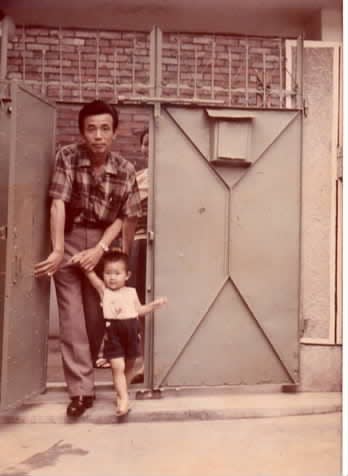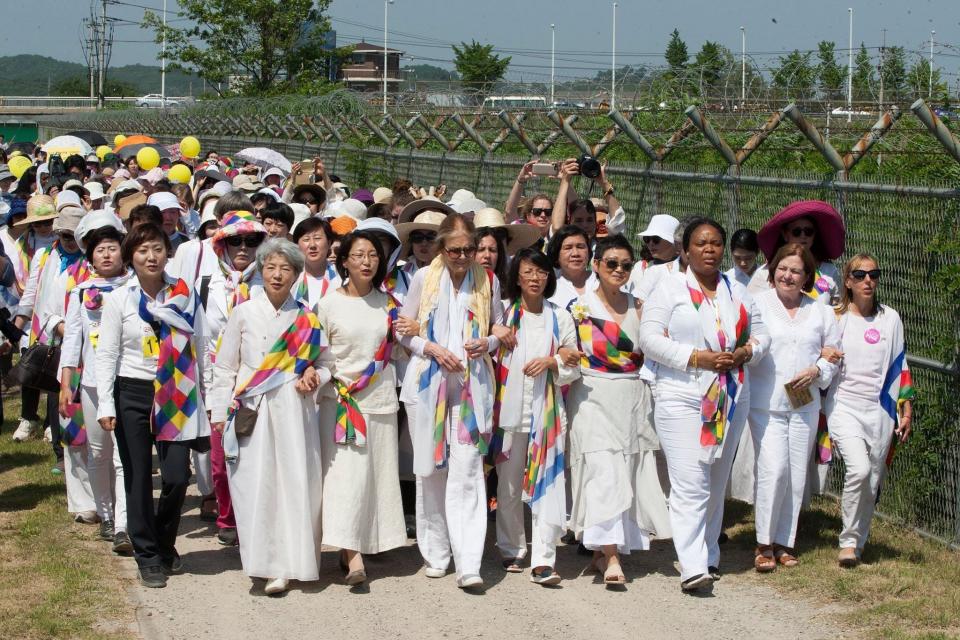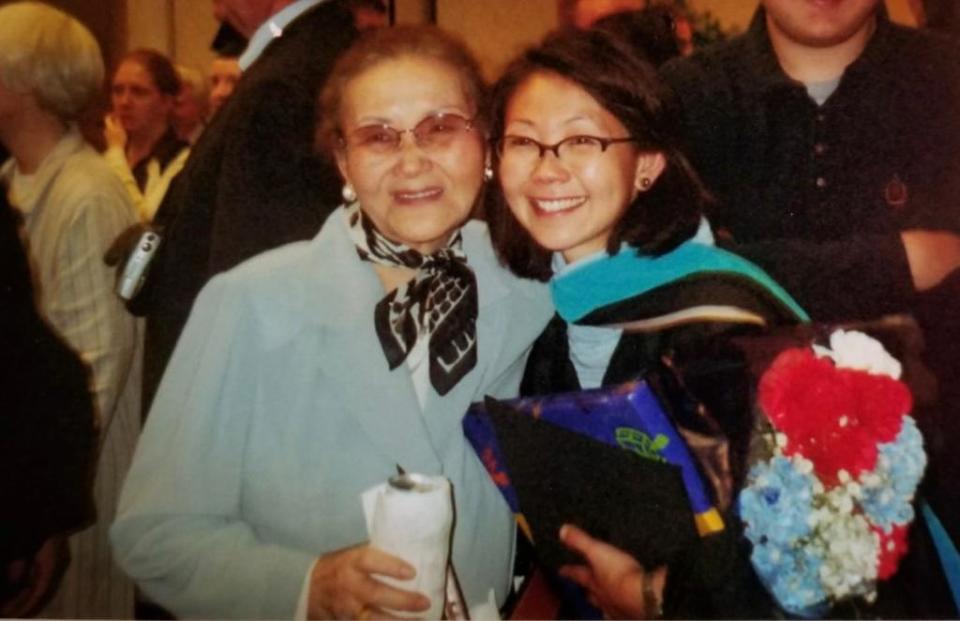70 years have passed since Korean cease-fire. It's time to end America's longest war.
As a daughter of South Korean immigrants, I was raised to be apolitical.
My parents, like many of their generation who lived through Japanese occupation and the devastating Korean War, came to the conclusion that in order to survive, it was best to stay silent. As a result, I knew almost nothing about my birth country or the forces that shaped it.
It wasn’t until graduate school at Georgetown University in Washington, D.C.,that I started learning about the Korean Peninsula and the U.S. legacy in the region. I was stunned to learn that the United States proposed (and the Soviet Union agreed) to divide the peninsula at the end of World War II – circumstances that led to war between North Korea (backed by China) and South Korea (supported by the United States and the United Nations), leading to the Korean War.
Though an armistice halted active fighting in 1953, a peace agreement was never signed. This state of unended war – which marks 70 years on Thursday – has irrevocably shaped not only the lives of those living on the Korean Peninsula but all of us in the United States.

It's time to sign a peace agreement with North Korea
After decades of failed U.S. policy, the only pathway to resolve the impasse is for the United States to sign a peace agreement with North Korea. An accord would reduce the risk of renewed conflict between North Korea and the United States and build trust in order to better negotiate on North Korea’s nuclear weapons program.
Establishing improved relations with North Korea would enable the State Department to quickly resolve sensitive political matters, such as what happened last week when Army Pvt. Travis King, 23, left a tour group to the Demilitarized Zone and crossed into North Korea.
The threat is real: Our nuclear weapons are much more powerful than Oppenheimer's atomic bomb
Women, in particular, have a crucial role to play in building lasting peace. Not only is there a rich history of women organizing for peace in Korea, but research shows that the involvement of women in peace processes leads to better outcomes.
Yet thus far, few women have been involved in the Korea peace process.

That’s why in 2015 I organized a women’s peace walk from North Korea to South Korea – across the Demilitarized Zone – with American feminist icon Gloria Steinem and Nobel Peace laureates Leymah Gbowee and Mairead Maguire. We walked with thousands of Korean women on both sides of the DMZ to show that women are united in their desire for peace in Korea. We continue to advocate for ending the Korean War, reuniting Korean families and including women in the peace process.
Our journey is documented in the film "Crossings," which is now airing on public television.
The 'Forgotten War' is America's longest-running war
While much public attention is paid to North Korea’s nuclear weapons development, we rarely consider how the continued U.S. military presence on the Korean Peninsula helps fuel tensions: 28,500 U.S. troops are stationed in South Korea, and the United States and South Korea routinely hold joint military exercises to rehearse war with North Korea.
The United States also maintains operational control of South Korea’s military during wartime.
North Korea routinely cites this context as justification for its nuclear weapons program – key to self-defense against a potential attack from the United States.
Ukraine shouldn't use cluster bombs: Biden is wrong to send cluster bombs to Ukraine. 50 years later, they're still killing in Laos.
Because the United States and North Korea have never replaced the armistice with a peace agreement, any accidental or intentional escalation could rapidly devolve into renewed fighting. Such a war could involve nuclear weapons, which would likely result in the deaths of millions.
Yet pointing out these facts has led me to be labeled naive at best and, at worst, a North Korean apologist.

Thankfully, more and more people are now speaking out in favor of peace with North Korea. Many of them are Korean Americans who come from divided families and long to return to their hometowns. Some, like me, have considered the human costs of this war and can remain silent no longer.
Other supporters include Harvard neurosurgeon Dr. Kee Park, who has witnessed the impact of sanctions on health care in North Korea; Dan Leaf, a retired U.S. Air Force lieutenant general who believes that the risk of nuclear war is highest in Korea; and Siegfried Hecker, a nuclear scientist who emphasizes the need for peace as a foundation for denuclearization.
Opinion alerts: Get columns from your favorite columnists + expert analysis on top issues, delivered straight to your device through the USA TODAY app. Don't have the app? Download it for free from your app store.
The risks and costs of the Korean War might be hidden from view, but Americans and Koreans alike can only gain from finally resolving America’s longest standing war.

There is a path forward, should our lawmakers be brave enough to take it. Passing the Peace on the Korean Peninsula Act, which calls for diplomacy in pursuit of a binding peace agreement to formally end the war, would go a long way toward resuscitating this issue from the murky depths of history.
While the Korean War is often referred to as America’s “Forgotten War,” Koreans and Korean Americans have not forgotten. Americans of every background must come together to demand an end to our nation’s longest-running war.
Christine Ahn is the founder and executive director of Women Cross DMZ, an organization of women mobilizing for peace in Korea.
You can read diverse opinions from our Board of Contributors and other writers on the Opinion front page, on Twitter @usatodayopinion and in our daily Opinion newsletter. To respond to a column, submit a comment to letters@usatoday.com.
This article originally appeared on USA TODAY: Korean Armistice Agreement isn't enough. Let's end our 'Forgotten War'

